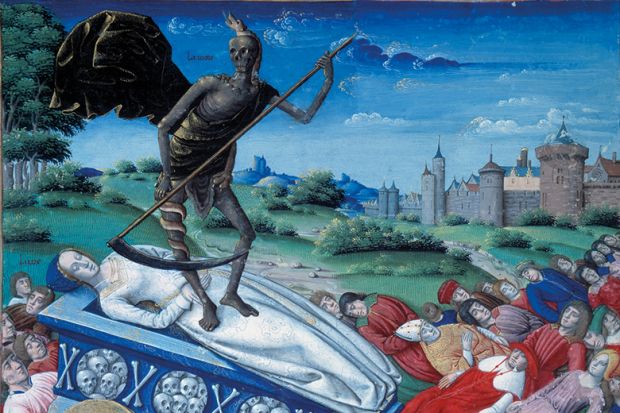“Desire spurs me…and one burning desire is born after another.” Francesco Petrarch is best remembered for passionate lines such as these. His love poems, addressed to an idealised woman known only as Laura, have inspired generations of writers since he first put pen to paper in the 14th century. However, they represent only a fraction of the man and his work.
Petrarch the Tuscan love poet may be the most enduring image of a writer who has been credited with initiating the Italian Renaissance. But Petrarch was also a classicist, collecting and transmitting the works of ancient Roman writers, and – most important for Christopher Celenza – a prolific writer in Latin. By interweaving his study of Petrarch with excerpts taken from a variety of his writings, the author invites us to hear all three versions of this “misunderstood” man, as he speaks to us through the ages.
The picture that emerges is a vivid but often frustrating one. Through the extensive research that bolsters his book, Celenza has obviously become intimate with Petrarch. However, he can feel like an elusive figure, glimpsed only through translated quotations, which Celenza then bookmarks and contextualises with contemporary history, theology and politics. Petrarch is a paradox. He is ambitious and egotistical, but also crippled with self-doubt – unable even to write the name of his rival, Dante, in letters to friends. He is a generous man who dedicates a huge amount of his time to correspondence with others, but he is also intensely private, someone who frequently expresses deep dislike for his fellow men.
Most important, he is a gifted writer. Even in letters to close, personal friends, the self that Petrarch presents to the world is artfully crafted. This deliberate self-fashioning, a hallmark of all his writing, makes it difficult to buy into Celenza’s occasional psychologising of a great but distant man. Did the loss of his mother at an early age lead to his obsession with, and idealisation of, the mysterious Laura? Is his dislike of others a reflection of his own self-hatred? These questions are impossible to answer, but Celenza’s trick is to make us want to. In doing so, he silently but compellingly encourages us to go and read more Petrarch.
The little windows into Petrarch’s world that Celenza gives us cannot satisfy a desire to know the “true” Petrarch, but they are addictive. An image that persists in the reader’s mind long after closing the book is straight from a bibliophile’s nightmares: Petrarch watching his father – a man who loved the arts but worried that his son wouldn’t be able to find a vocation within them – burn his books. The transition from Petrarch’s idealisation of Italy to his support for the dangerous and unstable tyrant Cola di Rienzo in pursuit of its unity is unsettling, and should give any modern reader pause. He himself turned again and again in his writings to the flaws of humanity. Celenza exposes the Italian writer’s flaws throughout his book, while simultaneously eliciting pity and respect. If he’s a “misunderstood” man, then this book makes us want to understand him, contradictions and all.
Hetta Howes is a lecturer in medieval literature at City, University of London.
Petrarch: Everywhere a Wanderer
By Christopher S. Celenza
Reaktion, 264pp, £14.95
ISBN 9781780238388
Published 28 February 2018




